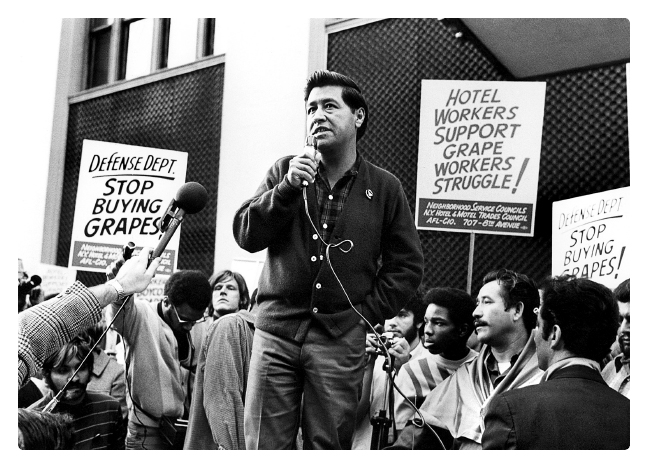Communication Competence
Communication is a choice. How you choose to phrase your messages, exhibit facial expressions, and even approach a conflict is up to you. Each time you make such a choice, you have the opportunity to strive for competence. This can help you set the stage for success in your own life.
Cesar Chavez transformed the lives of thousands by persuading powerful people to act on behalf of the poorest laborers in America.3 How? He mastered the art of communication competence: consistently interacting with others in an appropriate, effective, and ethical fashion. A compelling public speaker, Chavez effectively rallied migrant laborers to organize strikes protesting horrific work conditions in the fields, eventually leading to the creation of the United Farm Workers (UFW) organization. He was equally skilled at appropriately adapting his language to lawmakers, communicating the plight of farmworkers in poignant terms to those who controlled the laws governing them. Although landowners attacked him and his fellow workers with shotguns and dogs, he remained steadfastly committed to ethical communication, never lashing back at those who subjected him and others to violence. His competence ultimately paid off in an enormously positive and profound outcome: the creation of new laws ensuring better working conditions and higher wages for field laborers.
Chavez used his communication competence to manage groups and move audiences to action. But he was equally talented at interpersonal communication. For example, after delivering a speech in Washington, D.C., Chavez was ushered away by his bodyguards. When he spied UFW workers who had been volunteering to help with the event, he veered toward them, even as his guards tried to force him toward his car. Chavez shook the workers’ hands, saying, “I noticed how you stayed here all day and worked so hard. It is because of you there is a movement. I may be the one who does the speaking, but it is you who make the movement what it is!”
Cesar Chavez received many honors, including the Águila Azteca—the highest civilian award in Mexico—and the U.S. Presidential Medal of Freedom. His legacy is about justice, nonviolence, and help for the needy. It’s also proof that communication can change the world.
Communication is the means through which you achieve your goals (Burleson, Metts, & Kirch, 2000). But it is the competence of your communication that determines the quality of your outcomes. Competent communicators report higher levels of educational and professional achievement, more satisfaction with their relationships (including happier marriages), and better psychological and physical health (Spitzberg & Cupach, 2002).
Throughout the book, we explore the knowledge and skills necessary for strengthening your competence in all types of communication. In this chapter, we lay the foundation for your learning by explaining how to achieve communication competence.
